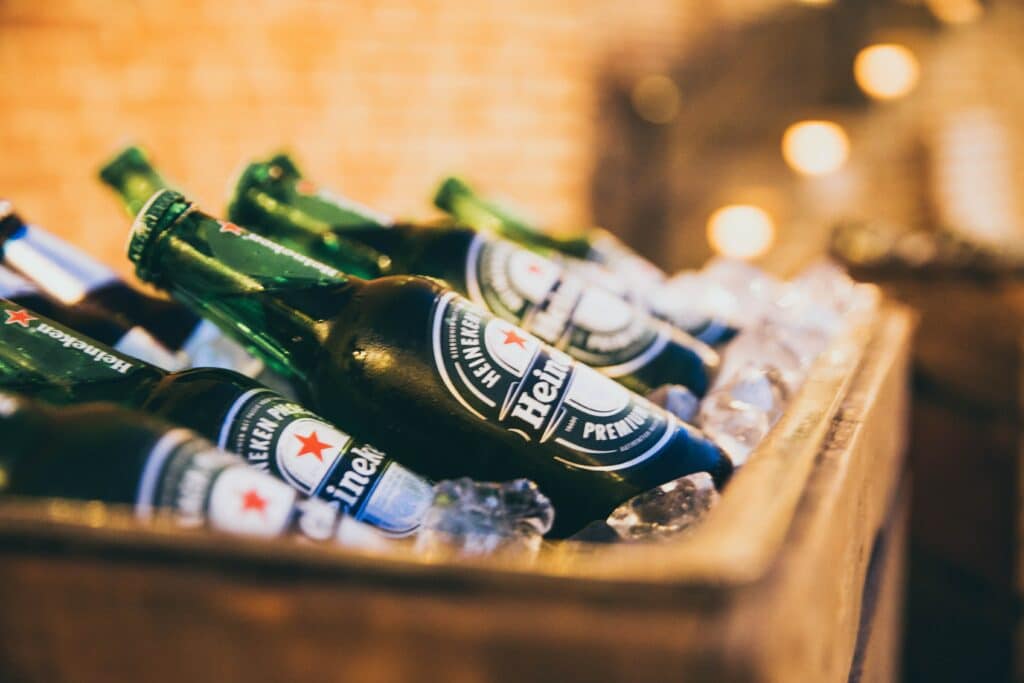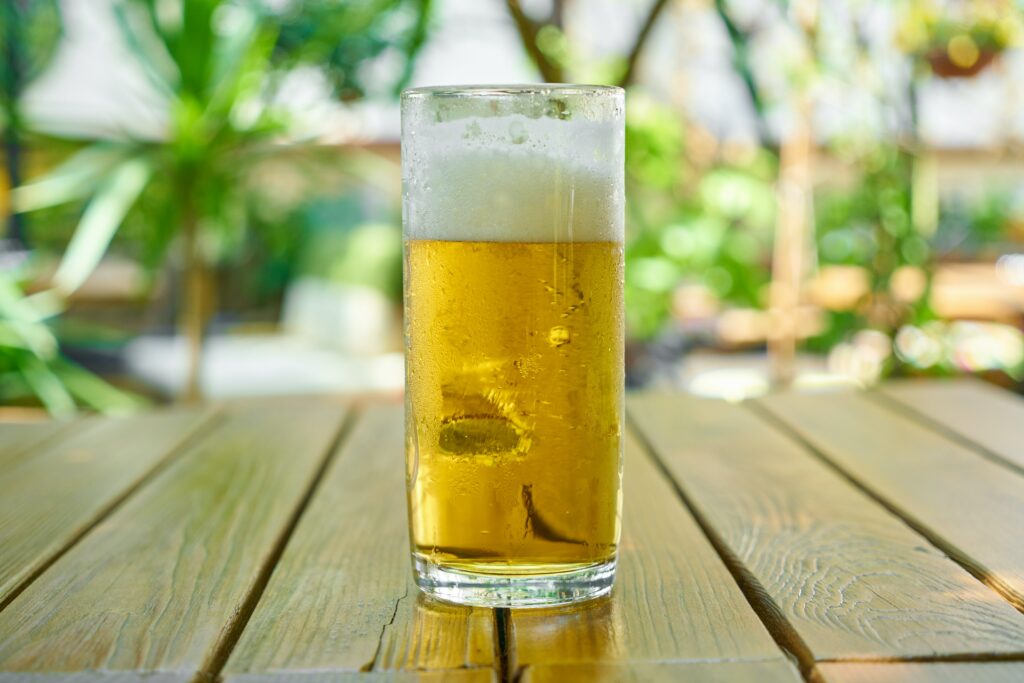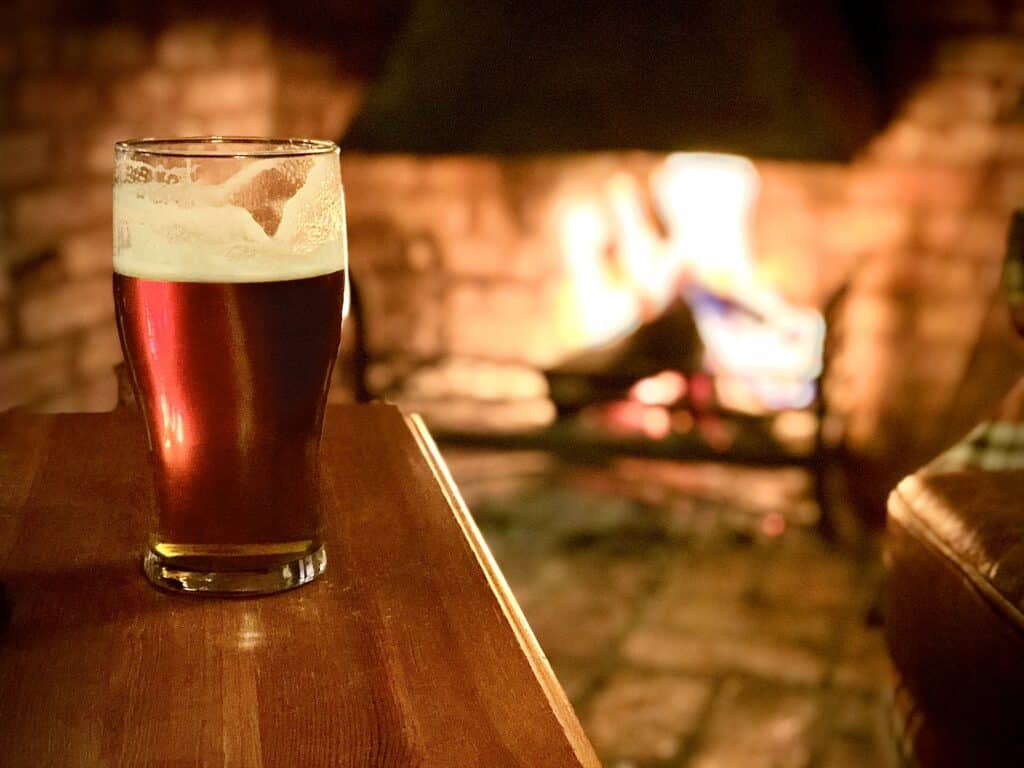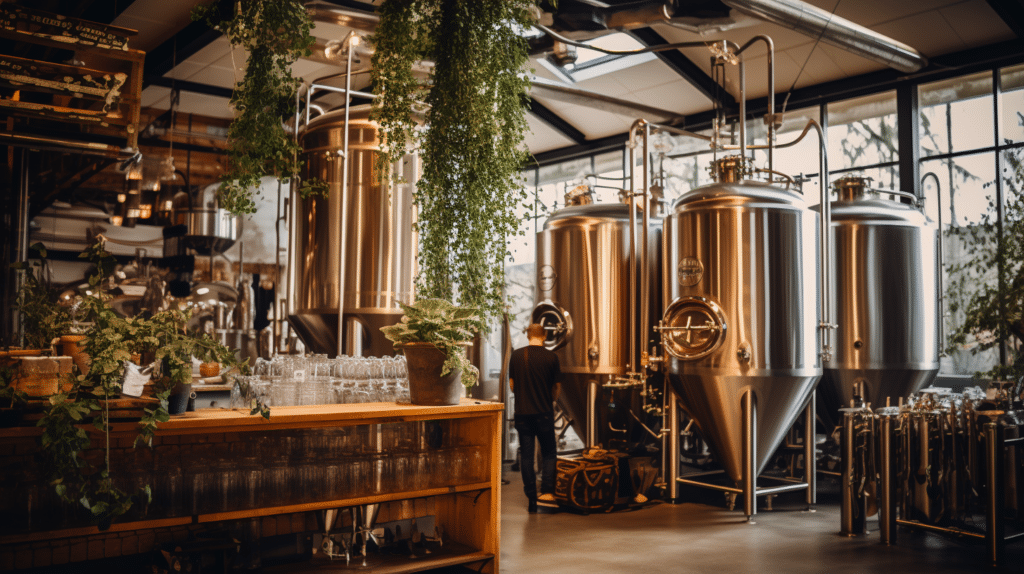Disclaimer: This post may contain affiliate links, from which I may earn a small commission at no extra cost to you. Thank you for supporting Ale Affair.
Why do people drink bottled beer? It’s not just about the drink—it’s the experience. Bottled beer, with its tactile sensation and nostalgic charm, captures a blend of tradition and taste that many find irresistible. Amidst the bustling beer market, the appeal of bottled brews is rooted in history, evoking memories and offering a sensory journey that transcends mere flavour. This exploration delves deeper, unravelling the timeless appeal of bottled beer in a world brimming with choices.
The Enduring Appeal of Bottled Beer: History, Nostalgia, and Sensory Delight
As you wander through the countless lanes of beer history, you’ll find bottled beer has always held a special charm. Interestingly, while the practice of bottling beer began in England in the 16th century, its widespread popularity surged in the late 17th century with the rise of stronger, hopped beers.
But why, especially when alternatives like canned beers, draft beers from kegs, and even newer options like beer growlers are available, do people drink bottled beer? The answer lies deeper than taste—it’s interwoven with history, nostalgia, and the sensory joy of the bottle itself.
Many beer enthusiasts argue that bottled beer captures the essence of the brewer’s artistry better. There’s an authenticity attached to bottled beer that evokes memories of times gone by. For some, it’s a nostalgic nod to their first sip of an adult beverage, while for others, it’s about the tradition that the bottle embodies. Holding a bottle, hearing the familiar pop of its cap, and witnessing the golden liquid pour into a glass is a ritualistic experience for many.
Moreover, from a taste perspective, many believe that beer from a bottle has a crisper and fresher taste profile. Pouring beer from a bottle into a glass allows the drinker to appreciate its hue, aroma, and fizz in a way that a can might not.
However, while tradition and taste are crucial, there’s also an undeniable aesthetic appeal. Bottles often feature detailed, artful labels that further narrate the story of the beer inside, making it more than just a beverage—it’s an experience.
As we journey forward, we’ll dive deeper into the bottled versus canned debate, aiming to understand if one genuinely trumps the other in terms of taste. Yet, for now, one thing’s clear: bottled beer, with its rich history and sensory experience, holds a firm place in the hearts of many.
Beer Tasting Showdown: Bottled vs Canned – Which Triumphs?
As we raise a glass to the vast world of beers, one debate bubbles up consistently: Does beer taste better in a can or bottle? It’s a contest between age-old tradition and modern convenience, both boasting their own sets of lovers.
Let’s begin with bottled beer. Many connoisseurs insist that beer from a bottle retains a purer, more authentic flavour. Glass, being inert, doesn’t react with the beer, ensuring that what the brewer intended is precisely what you taste. Pouring it into a glass amplifies the experience, letting you revel in its aroma, colour, and carbonation before the first sip even touches your lips.
Canned beer, on the other hand, has seen a resurgence in popularity. Modern canning processes have dramatically improved, ensuring that the dreaded metallic aftertaste, once a common complaint, is now a rarity. Recent trends in the beer industry, particularly the craft beer movement’s shift towards cans for their portability and improved sealing against light and oxygen have played a pivotal role in the resurgence of canned beer’s popularity.
Yet, as with most things in life, preference is deeply personal. For every individual who revels in the timeless elegance of a bottled brew, there’s another who appreciates a can’s convenience and modern feel.
The bottled vs canned debate extends beyond taste, encompassing environmental considerations, which we’ll explore next. But as for the taste, perhaps the best judge is your own palate. After all, when it comes to the age-old question of “Does beer taste better in a can or bottle?” the most delightful answer might just be in the exploration itself.
Eco-Impact Analysis: Are Cans or Bottles More Earth-Friendly?

Amid the clinking of bottles and the snap of cans being opened, an urgent query emerges, echoing the sentiments of our eco-conscious era: Are cans or bottles better for the environment? It’s not merely a question of personal preference; it’s a matter of our planet’s future.
First, let’s consider glass bottles. They’re weightier, which means they require more energy for transport. However, glass is infinitely recyclable without loss of quality, so a returned bottle can be reborn time and again, ensuring a closed-loop system that’s relatively eco-friendly.
Enter the aluminium can: lighter, easier to ship, and, in theory, highly recyclable. Aluminium requires significantly less energy to recycle than it produces from raw materials. Yet, the rate at which cans are recycled is not always optimal. In some regions, many end up in landfills, making their environmental advantage less clear-cut. On the flip side, when recycled, aluminium cans can be back on the shelf within 60 days, showcasing their potential for sustainability.
But the environment’s stakes extend beyond just recycling. Production processes, water usage, and the carbon footprint of creating each container play pivotal roles. While aluminium production is more energy-intensive, its lightweight nature could mean fewer carbon emissions during transport. Conversely, while glass production might be less energy-draining, the weight of bottles adds to their environmental toll.
In conclusion, both cans and bottles have their environmental merits and drawbacks. The answer to “Are cans or bottles better for the environment?” hinges on local recycling rates, transportation distances, and production methods. As consumers, making informed choices and advocating for improved recycling can tip the balance in Mother Earth’s favour.
Summary
So, why do people drink bottled beer? It’s a blend of tradition, taste, and tactile experience. Personal preference significantly affects whether beer tastes better from a can or bottle. Both packaging methods have unique merits, with the environmental impacts of cans and bottles sparking crucial discussions. As the industry adapts to an ever-growing demand for sustainability, we may soon be on the brink of novel innovations in beer packaging—ushering in a new era of eco-friendly alternatives. Are cans or bottles better for the environment? The answer isn’t black and white; understanding the nuances can guide our choices. As we raise our glasses, let’s toast to informed decisions, savouring our brews with an awareness of their broader impact and the promising future ahead.




